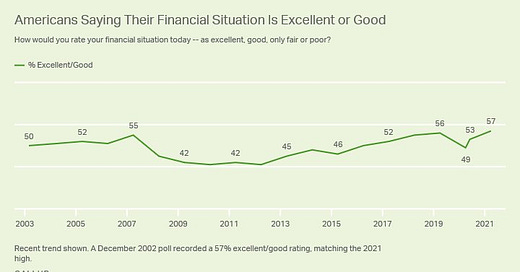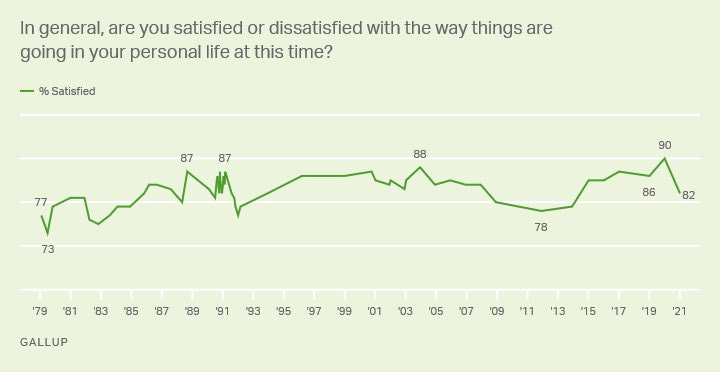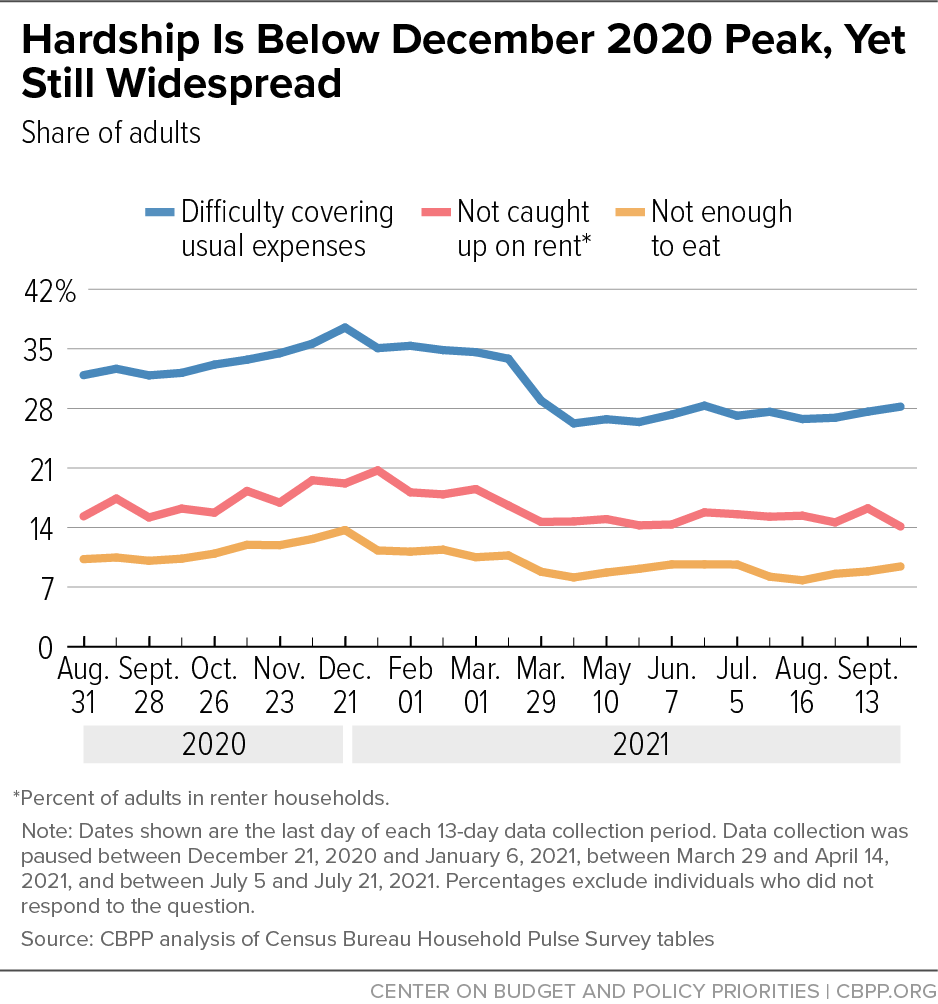Does it matter if a majority of Americans say their financial situation is good today?
This shoulg be obvious, but polls don't always tell the full story
A reader named Gayle points me to something Matthew Yglesias wrote recently about a new Gallup poll. The poll shows that 57% of Americans say their personal financial situation is excellent or good, a recovery from a low of recent 49% during the worst days of the pandemic (economically speaking) last year. Here’s the trend over time:
Gallup’s poll also showed that 82% of people are satisfied with the way things are going in their personal lives:
So, what’s the angle here? “You’d never know it from the discourse,” Yglesias wrote about the polls, “but it’s largely a contented, change-averse country.”
Well, I have a few reactions. First off: does this poll really show people are change-averse? Think about this politically. We know from other polls that people are wildly in favor of the massive social-spending program the Biden Administration is trying to push through the Senate right now, for example. Approval of and confidence in our government is also very low. Surely people want something different there? And, further, I guess it shows that people are content in the sense that they aren’t unhappy with the way things are going. But maybe they just feel blah about their lives? Maybe Gallup could have asked them if they were happy about the different things in their lives. Their jobs, family, relationships, hobbies, etc. I imagine most people want to change something.
But here’s the bigger issue. Yglesias’s take on these trends in peoples’ financial situations omits a lot of relevant information. Primarily, if 57% of people say they’re doing well then 43% of people by definition are not—and that’s a lot of people! He could have just as soon said that 89% of people in America are living above the poverty line. But that’s 34m people, and poverty is obviously, like, really bad, dude. You could also say that Americans have become more supportive of increased immigration in recent decades (which is true, per Gallup) but that would ignore that the white nationalist “Great Replacement” theory has also become more common.
For more on what we’re missing when we focus on the 57%, here’s a headline from the Wall Street Journal today:
“Close to 40% of U.S. Households Say They Face Financial Difficulties as Covid-19 Pandemic Continues”
40%, eh? That’s…. also pretty high! The article also says 19% of households have depleted their savings accounts, according to a poll from Harvard.
Further, an anlysis of Census polling by the Center on Budget and Policy Priorities finds that nearly one-third of adults are having trouble “covering usual expenses,” one-in-seven (or 14%) are missing rent payments, one-in-five renters with children are also behind, and nearly one in every ten adults say their family doesn’t have enough to eat.
Things are, to say the least, pretty grim in many parts of America.
So while people across the US are saying they’re doing well more often than not, and more often than in the past this should serve as a reminder that one single datum does not always (NB: perhaps even not usually!) tell us critical part of the story. And despite how we’ve been conditioned, a majority is not always the best threshold for our analysis.






